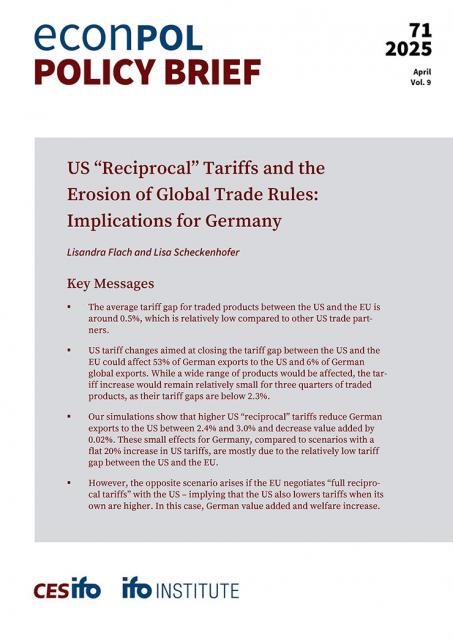News Archive

Do School Curricula Matter to Students in the Long Run?
|
EconPol Forum
| News
Greater exposure to evolution teaching not only improves students’ knowledge of evolution by the time they graduate from high school, but it also enhances their belief in evolution in adulthood. What is more, the reforms affect high-stakes life decisions, namely the probability of choosing a career in life sciences. Reforms of the coverage of evolution in US education standards have a positive effect on students’ knowledge of evolution by the end of high school.

EconPol Forum 01/2023: Climate Change: Greening the Economy by Green Finance?
|
EconPol Forum
| News
The financial sector may play a central role in climate change. This is because, ideally, climate policy measures create important incentives for investors throughout the globalized world to redirect their capital in favor of a cleaner production and thus lower emissions. That is why climate policy must consider the link between the real sector and the financial sector. This transition will not happen by itself. It requires targeted financing measures.

The Interplay of Interest Rates and Debt-Financed Government Spending
|
Policy Brief
| News
Persistently low interest rates on government debt over past decades have prompted some economists to question the wisdom of fiscal policies that restrict the use of deficits to finance government spending. In the new EconPol Policy Brief Bev Dahlby and Ergete Ferede argue that the widely held view that there is no, or only a low, fiscal cost from debt-financed increases in program spending can be misleading.

EconPol Newsletter 2022/06
|
Newsletter
| News
The latest issue of the EconPol Newsletter has just been published featuring the new Forum on the question “How to Deal with the European Energy Crisis?”, a new Policy Brief on “Intentions to Stay and Employment Prospects of Refugees from Ukraine” and our newly revised section “EconPol Opinion” with two contributions by Clemens Fuest.

Working from Home Around the World
|
EconPol Forum
| News
The Covid-19 pandemic triggered a huge, sudden uptake in work from home, as individuals and organizations responded to contagion fears and government restrictions on commercial and social activities. Over time, it has become evident that the big shift to work from home will endure after the pandemic ends. A new global survey of working arrangements across 27 countries presented in the EconPol Forum shows that employers plan an average of 0.7 work-from-home days per week after the pandemic ends.
